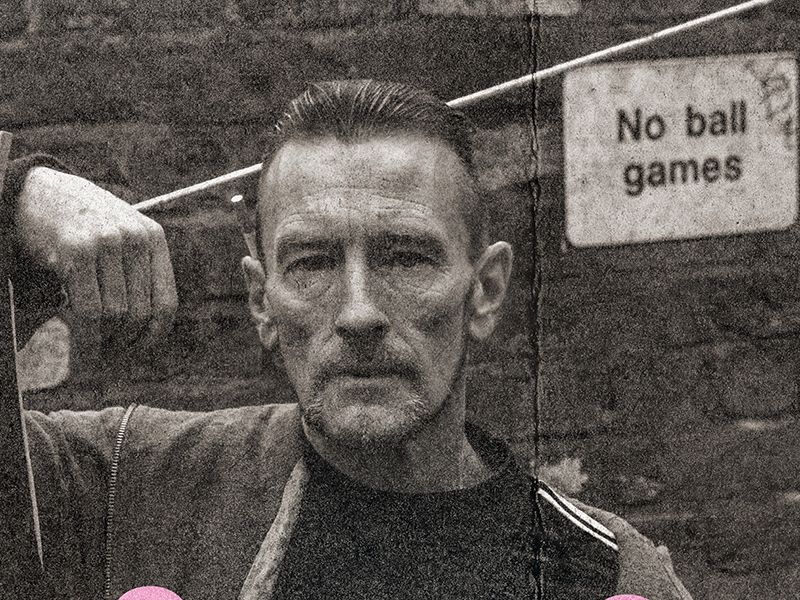Moorcroft is writer-director Eilidh Loan’s tribute play to the working class world of football that her dad lived in for years and is inspired by the various teams he played for and stories he told. It focuses on Garry who is ‘celebrating’ his 50th birthday and looking back on the boys of the Moorcroft football team that he grew up with and was intensely connected to.
The graffitied set, costumes (some of them genuine pieces from Loan’s father), and synth-pop music instantly create a nostalgic 80s atmosphere reminiscent of This is England, Billy Elliot, or Trainspotting. The cast’s chemistry and camaraderie is, likewise, immediately palpable. While Garry is at the centre of events, opening the play with an intimate and direct monologue, the lives of the other six boys are equally exposed and developed throughout the play.
Significantly, the football games themselves rarely take centre-stage. Instead, the focus is on the changing room banter, post-game drinks, nights out, and after-dark talks. This almost isn’t even a ‘football play’ (barely mentioning Scotland’s major teams). Rather, the sport is a conduit for friendship, hope, perseverance, and brotherhood. It even erases racism, homophobia, and segregation amongst the teammates and opens up conversations about several of these social issues.
Although very dark in moments, and incredibly moving in its final act, Moorcroft is overwhelmingly funny. Each scene is strewn with bolshie punchlines and raucous expletives and Martin Quinn, playing Mince, is the comedic star, stealing many a scene and portraying the oddball of the gang with perfect timing.
Ultimately, the play is a keen-sighted exploration of masculinity. It isn’t a scathing critique of toxicity though. It’s a sympathetic and loving examination of working class men living in an unfair world. It captures their emotional suppression and mental health crises with care and invites the audience to reflect and ask ourselves how we support one another and what truly brings meaning to life.
